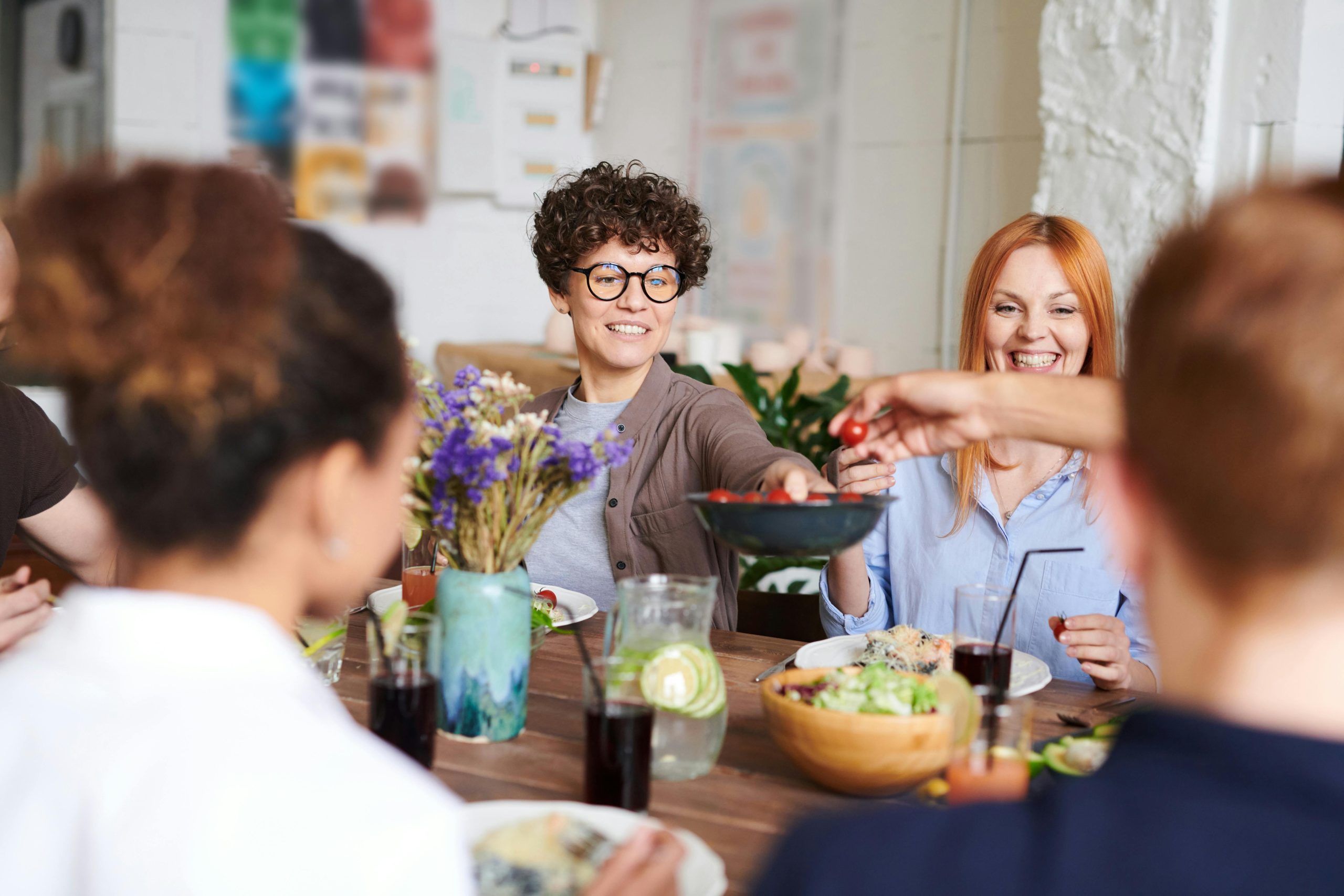Everyone wants to have good friends. We all desire meaningful connections with people who care about us.
But have you spent any time reflecting on the kind of friend that you are? A good friend, in many ways, strives to be a good person in their relationships. That means that you treat people well and respect them for who they are. You also strive to be empathic and supportive as much as possible.
And most of all? Those things you most value in a friendship? It’s important to try to cultivate those traits yourself. As the Golden Rule states, do unto others as you would have them do to you.
Good Friends Hold Space Compassionately
Good friend genuinely listens to others. They strive to understand, support, and connect through conversation. This is a key building block for creating emotional safety within a relationship.
Holding space compassionately means:
- Actively listening to their feelings and concerns
- Maintaining a consistent presence that’s warm and open
- Holding yourself accountable if and when you make mistakes
- Showing your friends that they matter to you- both in your words and actions
- Respecting boundaries within the relationship
With that said, there’s no perfect way to hold space. It’s normal to sometimes feel like you’re on “better behavior” with new friends than old ones, but consider asking yourself, Am I the kind of friend I’d like to have? Do I give people the love and appreciation I want others to give me?
A Good Friend Is There During the Tough Times
It generally feels good to spend time with friends when things in life are going well. But true friendship may be defined by how well you step up and show support for one another during difficult moments, including grief and loss, medical issues, mental health concerns, and significant life changes.
When you’re unconditionally there for someone, you are more likely to be considered trustworthy and safe. Of all the qualities someone can possess, these often rank as some of the most important.
Being present during the tough times entails:
- Focusing more on being a good listener than trying to “fix” the issue
- Asking how you can specifically provide support (or simply offering to take over certain tasks)
- Being patient and tolerant if your friend withdraws or pulls away
Good Friends Are Appropriately Honest
Honesty is an important part of any relationship. True friends sincerely want what’s best for one another, and sometimes, that means talking about hard topics or being assertive in your communication.
With that in mind, honesty does not give you the license to be cruel or hostile to others. Intention and impact both matter, so it’s important to be mindful of what you say and how you say it. If you feel you must confront a friend about their behavior, respect should always be the foundation underlying your conversation.
For example, a friend may ask you what you think about them getting back with their ex. You know they’ve had a tumultuous history with past romantic relationships, and you’re worried about them getting hurt again. Instead of people-pleasing (which would entail withholding your truth to avoid hurting someone else) or bluntly saying, “Why would you ever think this is a good idea?” it may be much kinder to vocalize your concerns by saying, “I know you were pretty unhappy in the past, and I definitely feel nervous about history repeating itself, but I will support you unconditionally.”
Good Friends Understand Ebbs and Flows of Friendship
Life evolves, people drift apart, but true friends understand that being a good friend means tolerating some of this uncertainty and trusting that the friendship can withstand the ups and downs of closeness.
That said, it’s still important to focus on nurturing your relationship. You respect the friendship when you choose to nurture it, and good friends care about staying close. They prioritize closeness, even if that closeness isn’t on a consistent schedule.
With that, if some time has passed since reaching out, make an effort to rekindle the connection. Send them a message to let them know they’re on your mind. See if you can plan a lunch or dinner date in the near future.
Good Friends Know Close Friends May Serve Different Purposes
No one friend can solely meet all your needs. This is true for any relationship, and it’s why having more than one friend can be so paramount, especially in your adult life. Different friends have different strengths and bring various qualities into your life.
You’re certainly not a bad friend for preferring one person for one over another. For example, you may appreciate one close friend for her sharp sense of humor. She always knows how to make you laugh, and spending time with her reminds you of the simple joys in life. But you may turn to another great friend because she always has the right thing to say when you’re struggling. In those sad moments, you know you can turn to them for emotional support.
Therapy for Strengthening Your Relationships in Austin, TX
Relationships are important at all stages of life, and everyone can take steps to become a better friend. I specialize in treating relationship challenges and also treat clients experiencing grief, loss, anxiety, and depression. Regardless of what you’re struggling with, I’d be honored to support you. If you think we might be a good fit for one another, please contact me today to schedule an initial consultation.

